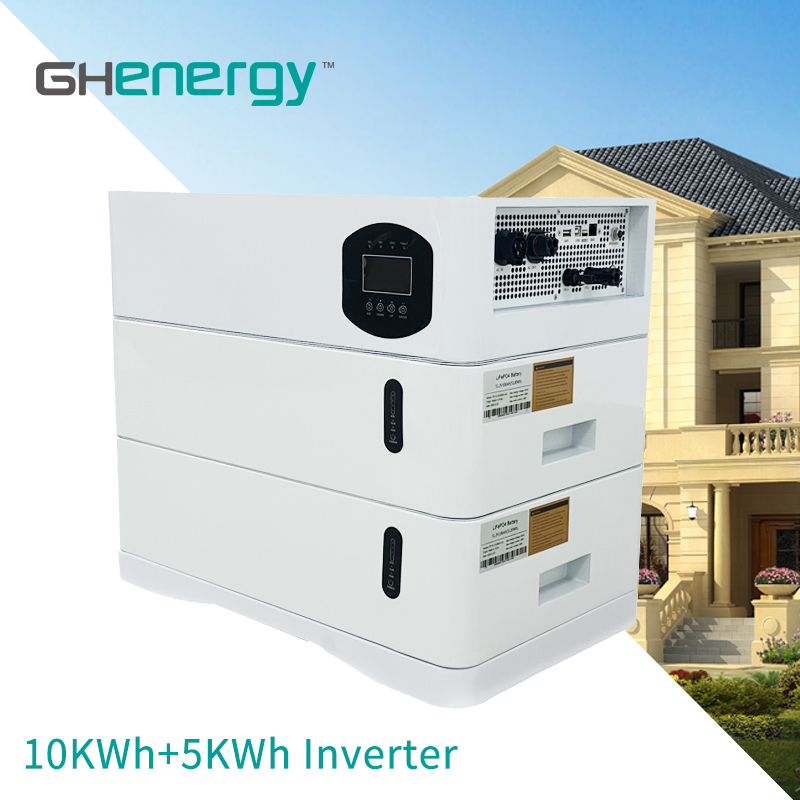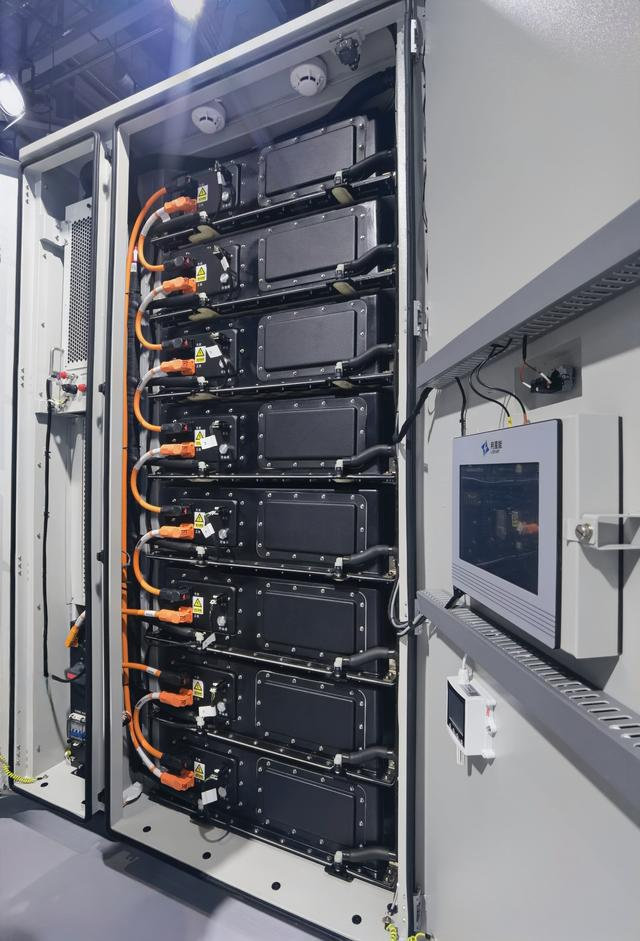How Do Energy Storage Battery Modules Work?
Systems for storing energy are becoming more and more important for power management in the modern world. Energy independence and the advancement of renewable energy solutions depend on our capacity to store energy efficiently, whether it is for large-scale energy plants, commercial buildings, or residential houses. The Energy Storage Battery Module is among these systems' most crucial parts. These modules serve as the framework for the controlled storage and release of energy, guaranteeing that power is available when needed. We'll explore energy storage battery modules' operation, value to contemporary energy grids, and applications in various sectors of the economy in this blog.

Understanding the Components of Energy Storage Battery Modules
Energy Storage Battery Modules are fundamentally made up of numerous individual battery cells that are connected to form a unified system. Through particular chemical reactions, each of these cells plays an essential role in the storage of electrical energy. It is simpler to adapt this modular design to meet a variety of energy storage requirements because it allows for scalability and flexibility.
These modules are typically a part of a larger energy storage system that also includes important parts like battery management systems (BMS), power conversion systems, and other parts that work together to make sure that charging and discharging are done in an effective way. The overall system's functionality and dependability can only be maximized by integrating these parts.
Examining these modules' charge and discharge cycles in greater detail is necessary for comprehension of their operation. The battery module takes in and stores energy produced by renewable sources such as wind turbines or solar panels. During times of high demand or when the primary energy source is unavailable, this stored energy becomes extremely useful. These batteries, for instance, are used by solar-powered systems to generate power at night or on cloudy days when sunlight is insufficient.
The energy storage module's health and effectiveness are essentially maintained by the battery management system. It keeps an eye on important parameters like voltage, temperature, and charge levels all the time to make sure the module works within safe limits. The BMS contributes to the protection of the individual cells from damage by preventing conditions like overcharging and deep discharge, which ultimately extends the lifespan of the module as a whole.
Modern energy storage battery modules are becoming increasingly sophisticated as a result of advancements in BMS technology. They can improve performance, allowing users to effectively and reliably harness energy. In addition to enhancing the user experience, this capability contributes to the larger objective of sustainable energy management. The significance of robust energy storage systems cannot be overstated as the demand for renewable energy solutions continues to rise.

The Role of Energy Storage Battery Modules in Energy Grids
Energy storage battery modules are revolutionizing the way energy grids operate. These modules are crucial for balancing supply and demand in power grids, especially as the use of renewable energy continues to grow. Solar and wind power are intermittent energy sources—meaning they only generate power when the sun is shining or the wind is blowing. Energy storage battery modules help stabilize the grid by storing excess energy when production is high and releasing it during times of low production or high demand.
A solar energy system, for instance, can generate more electricity than a household or business needs on a sunny day. The battery module effectively captures and stores this excess energy, allowing it to be utilized later in the evening after the sun has set. In addition to reducing dependence on conventional energy sources, this capability also results in lower electricity bills. Consequently, renewable energy usage becomes a more dependable choice for customers.
Energy storage battery modules play a crucial role in assisting businesses in managing their energy costs in industrial settings. Businesses can utilize this stored energy during peak demand times, when rates rise, by storing energy during off-peak hours, when rates are typically lower. Energy management becomes more effective and operational costs are significantly reduced as a result of this strategic approach.
In addition, these battery modules provide a crucial safety net by providing additional power in the event that the grid is disrupted. As a result, productivity is safeguarded and costly downtime is avoided while essential operations can continue unabated. Overall, energy storage solutions are reshaping how residential and commercial users think about reliability and energy use.
Applications Across Various Industries
The versatility of energy storage battery modules makes them suitable for a wide range of applications across different industries. From residential use to large-scale industrial solutions, these modules are helping sectors transition to cleaner, more reliable energy systems.
In the automotive industry, battery modules play a critical role in electric vehicles (EVs). These modules store energy to power electric motors, enabling vehicles to operate without gasoline or diesel engines. As EV technology advances, battery modules are becoming more efficient, providing longer driving ranges and faster charging times.
In the renewable energy sector, energy storage battery modules are essential for storing energy generated from solar panels and wind turbines. They enable households and businesses to operate independently from the grid by providing stored energy when generation is low. This is particularly important for off-grid systems, where access to the grid is limited or non-existent.
Another critical application is in military and aerospace industries, where reliable energy storage solutions are necessary for powering equipment and vehicles in remote or extreme environments. Energy storage battery modules ensure continuous power supply for communication devices, vehicles, and other critical systems, even when access to conventional power sources is unavailable.
Conclusion
Energy storage battery modules are fundamental to the future of renewable energy and efficient power management. They provide a reliable solution for storing energy and ensuring it is available when needed, whether for residential use, industrial operations, or large-scale power grids. By optimizing energy usage, reducing dependence on traditional power sources, and supporting the growing demand for renewable energy, these battery modules are helping to create a more sustainable and energy-efficient world.
To learn more about how energy storage battery modules can benefit your energy needs, feel free to contact us at jasmine@gongheenergy.com.
References
1. Gonghe Electronics Co., Ltd. (2024). Graphene Super Capacitor 1500F Solar Energy Storage Batteries 48V 1050Wh. Gonghe Electronics.
2. Chang, H. (2023). Battery Storage Solutions for Renewable Energy. Clean Energy Journal.
3. Wilson, A. (2022). The Role of Battery Storage in the Future of Energy Grids. Energy Storage Today.
Post time: Oct-08-2024



